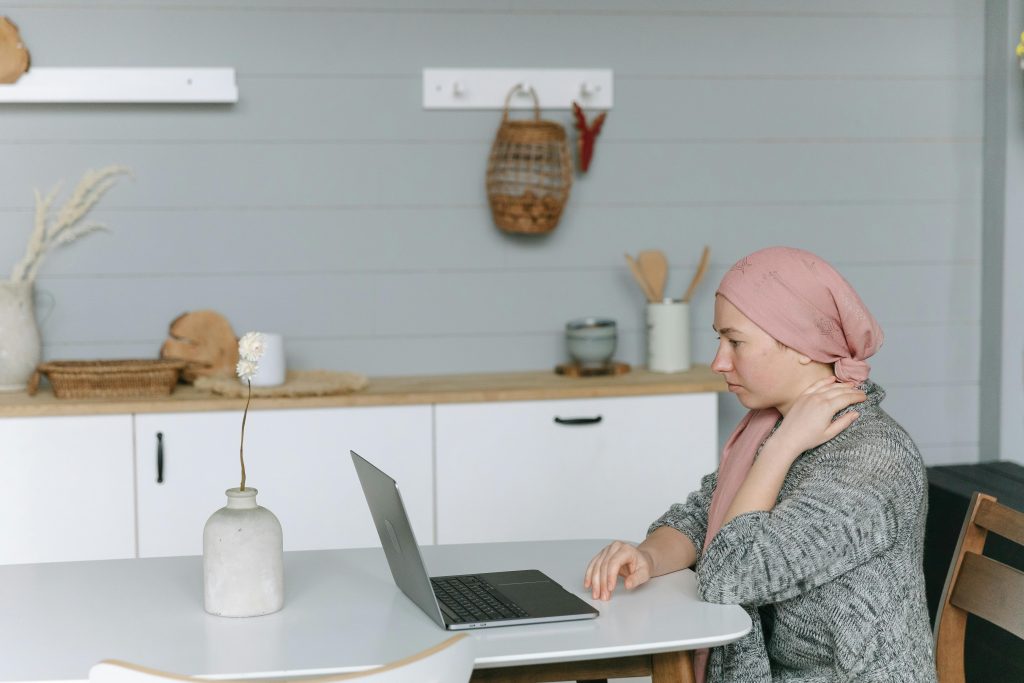
In today’s digital landscape, social media has become an integral part of our lives. Whether we are sharing personal milestones, promoting our businesses, or simply scrolling through our feeds, the constant connectivity can lead to overwhelming feelings of anxiety and fear of overexposure. This fear can manifest in various ways, from worrying about how many likes or comments our posts receive to feeling pressured to curate a perfect online persona. Understanding this phenomenon is crucial for anyone looking to navigate the complexities of social media while maintaining their mental well-being.
The Rise of Social Media Anxiety
The fear of overexposure on social media is a growing concern that affects a wide range of users, from casual posters to influencers and business owners. According to the American Psychological Association, this anxiety often stems from media saturation and the relentless stream of information available online. As we engage with these platforms, we may experience stress and mental health challenges, leading to a cycle of anxiety that can be hard to break.

Understanding Social Media Anxiety
Social media anxiety can be defined as the apprehension or fear associated with using social media platforms. This anxiety can stem from various sources, including:
- Fear of Judgment: Many users worry about how their posts will be perceived by others. This fear can lead to a reluctance to share authentic content, resulting in a curated online presence that may not reflect reality.
- Comparison Culture: Social media often showcases the highlight reels of people’s lives, leading users to compare their experiences to others. This can foster feelings of inadequacy and low self-esteem.
- Information Overload: The constant influx of information can be overwhelming. Users may feel pressured to stay updated, leading to anxiety about missing out on important news or trends.
- Privacy Concerns: With the increasing awareness of data privacy issues, many users are anxious about how their personal information is being used and shared online.
Strategies for Managing Social Media Anxiety
Managing social media anxiety requires a multifaceted approach that combines practical strategies with mindfulness techniques. Here are some effective methods to help you regain control over your social media experience:

1. Establish Clear Boundaries
Setting specific times for checking social media can help create a healthier relationship with these platforms. Limiting your usage to 30 minutes per day has been shown to decrease feelings of anxiety, depression, and loneliness. By adhering to a schedule, you can prevent mindless scrolling and reduce the likelihood of feeling overwhelmed.
2. Implement Digital Detoxes
Regularly taking breaks from social media can significantly improve your mental well-being. Designating screen-free weekends or evenings allows you to reset your relationship with these platforms. During these detox periods, engage in offline activities that promote well-being, such as exercise, reading, or spending time in nature. These breaks can help you reconnect with yourself and reduce the pressure to be constantly connected.
3. Practice Mindfulness Techniques
Mindfulness practices can be incredibly effective in alleviating social media-induced stress. Techniques like deep breathing, meditation, and body scans can help ground individuals and reduce anxiety triggers associated with social media use. Apps like Headspace offer guided meditations specifically designed to address social media-related anxiety, helping users cultivate a sense of calm and presence.
4. Curate Your Online Environment
The content you consume on social media can significantly impact your mental health. Unfollow or mute accounts that consistently trigger negative emotions or comparisons. Instead, focus on following content that inspires, educates, or brings joy. This proactive approach can transform your social media experience into a more positive and enriching one.
5. Recognize Signs of Problematic Use
It’s essential to be aware of your social media habits. If you find yourself constantly checking platforms, even without notifications, or if social media interferes with daily activities, it may be time to reassess your habits. Consider seeking support from friends, family, or mental health professionals to gain valuable perspectives and strategies for managing social media anxiety.
6. Build Digital Resilience
Digital resilience refers to the ability to adapt, manage, and thrive in the online world while effectively balancing well-being and security. To build digital resilience, individuals should focus on several key areas:

- Critical Thinking: Develop the ability to evaluate online content critically, identifying misinformation and unreliable sources. This skill helps users make informed decisions about the information they consume and share.
- Emotional Intelligence: Cultivate awareness of how social media interactions affect emotions and learn to manage reactions to online content. Recognizing negative feelings triggered by social media and developing coping strategies can enhance emotional well-being.
- Healthy Boundaries: Establish clear limits on social media usage, including setting specific times for checking platforms and using “do not disturb” features. This helps maintain a balance between online and offline life.
- Digital Literacy: Enhance your understanding of how social media platforms work, including their design features and potential psychological impacts. This knowledge empowers users to make more informed choices about their online engagement.
- Positive Online Practices: Actively curate social media feeds to include content that promotes well-being and aligns with personal values. Seek out positive, inspiring content to foster a healthier online environment.
- Cyber Security Awareness: Learn about online safety measures, including protecting personal information and recognizing potential threats. This knowledge helps users navigate the digital world more securely.
- Seeking Support: Recognize when to ask for help and know where to find resources for support. This may include reaching out to trusted friends, family members, or mental health professionals when facing online challenges.
- Resilience-Building Activities: Engage in practices that strengthen overall resilience, such as mindfulness exercises, stress management techniques, and fostering real-world connections. These activities can help buffer against the potential negative impacts of social media use.
By developing these skills and practices, individuals can enhance their digital resilience, leading to a healthier and more balanced relationship with social media. This approach not only helps manage anxiety and stress related to online interactions but also enables users to harness the positive aspects of social media while minimizing its potential drawbacks.
Overcoming the Spotlight Effect
Another significant aspect of social media anxiety is the spotlight effect, a psychological phenomenon where individuals overestimate the extent to which their actions, appearance, or mistakes are noticed by others. This cognitive bias can lead to heightened self-consciousness and anxiety, especially when posting on social media.

Strategies to Combat the Spotlight Effect
To overcome the spotlight effect, consider the following strategies:
- Cognitive Reframing: Shift your perspective by asking yourself how often you scrutinize others’ posts or notice their minor flaws. Typically, the answer is not very often, as most people are more concerned with their own image and experiences.
- Mindfulness: Focus on the present moment and your immediate surroundings to reduce the tendency to dwell on imagined judgments from others. Mindfulness meditation, even for short periods, can help decrease egocentrism and improve judgment accuracy.
- Third-Person Perspective: When faced with a situation that triggers the spotlight effect, try to view it as an outside observer would. This shift in perspective can help you realize that your perceived flaws or mistakes are likely much less noticeable or significant to others than they seem to you.
- Engage in Real-World Interactions: Face-to-face connections provide opportunities for genuine feedback and can help calibrate your perceptions of how others view you. These interactions can serve as a reality check against the often-distorted lens of social media.
By implementing these strategies and maintaining a balanced perspective, you can gradually overcome the spotlight effect and develop a healthier relationship with social media, reducing anxiety and enhancing your overall digital well-being.
The Role of Sociobo in Navigating Social Media
As you work to manage your social media anxiety, it’s important to consider how tools and services can support your efforts. Sociobo offers an innovative approach to enhancing your social media presence while alleviating some of the pressures associated with overexposure.

Sociobo specializes in “social proof aggregation,” a technique designed to enhance your brand’s visibility, authority, and influence on social media platforms. By providing aggregated followers and engagement, Sociobo helps you build a credible online presence that attracts genuine followers. This service is particularly beneficial for individuals and businesses looking to establish or grow their social media profiles without the anxiety of constant scrutiny.
Through the use of aggregated followers—high-quality bot accounts that engage with your content—Sociobo enables users to boost their engagement rates and improve their trust score in social media algorithms. This strategic enhancement of your online presence can help mitigate feelings of inadequacy and anxiety, allowing you to focus on creating authentic content that resonates with your audience.
By leveraging Sociobo’s services, you can cultivate a more confident and resilient approach to social media. Instead of feeling overwhelmed by the pressure to maintain a perfect online image, you can focus on building meaningful connections and engaging with your audience in a more authentic way.
Dealing with the fear of overexposure on social media is a complex challenge that requires a thoughtful and proactive approach. By implementing strategies to manage social media anxiety, building digital resilience, and recognizing the impact of the spotlight effect, you can cultivate a healthier relationship with these platforms.
As you navigate the digital landscape, consider how Sociobo can support your journey. By enhancing your social media presence through social proof aggregation, you can alleviate some of the pressures associated with overexposure and focus on what truly matters—connecting with your audience and sharing your authentic self.
Explore how Sociobo can help you build your personal or brand identity on social media by visiting Sociobo.com. Embrace the opportunity to grow your online presence with confidence and ease, and take the first step towards a more fulfilling social media experience today.






No comment yet, add your voice below!